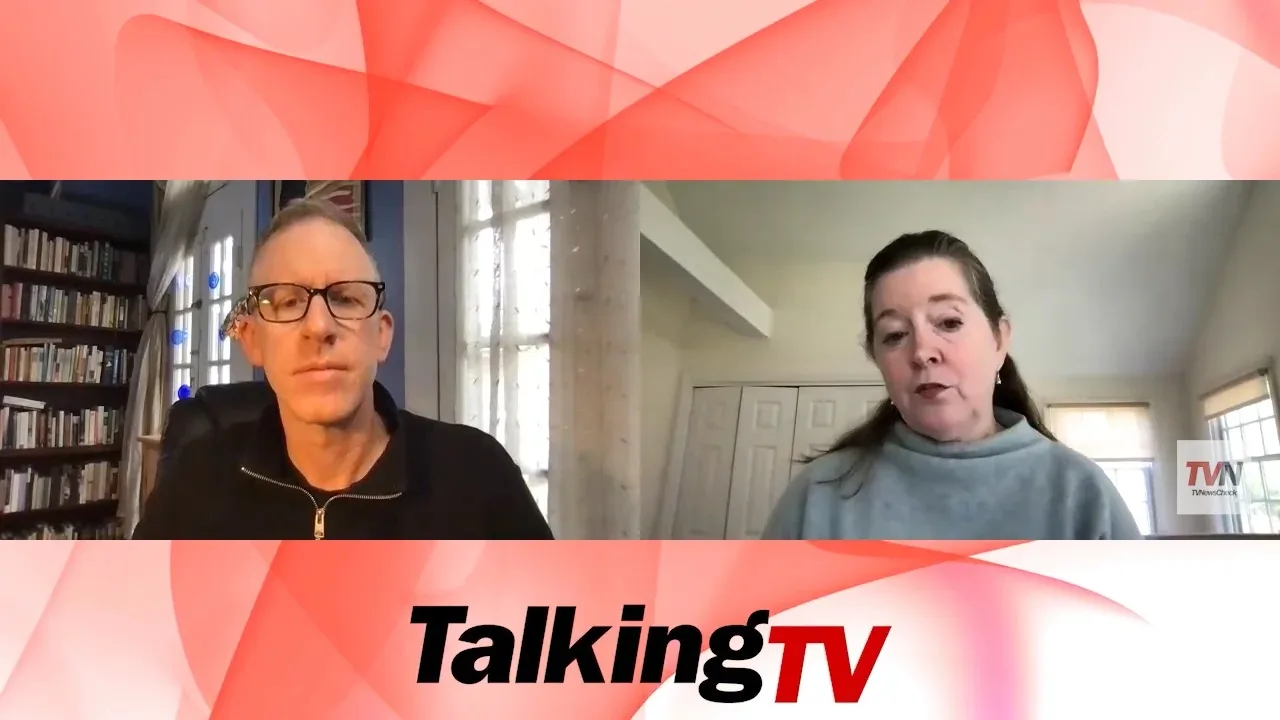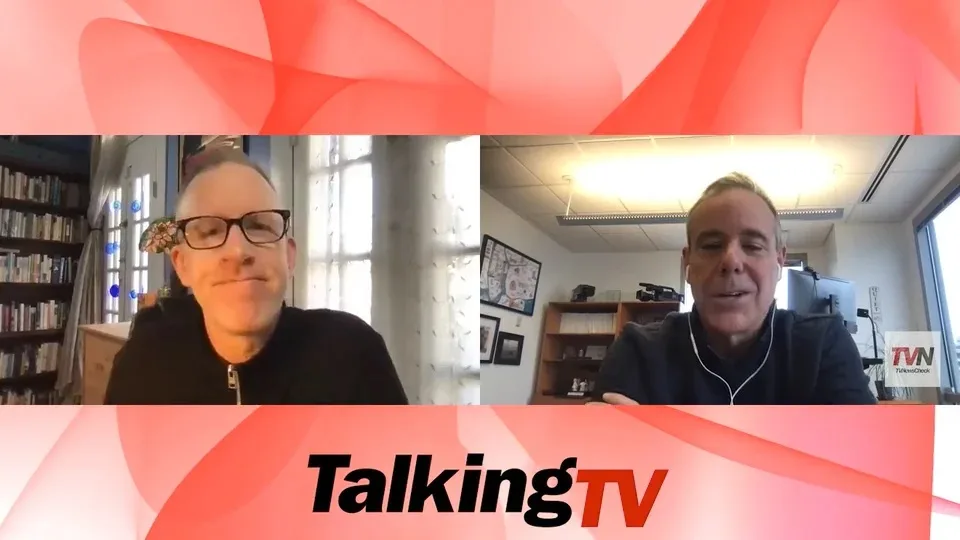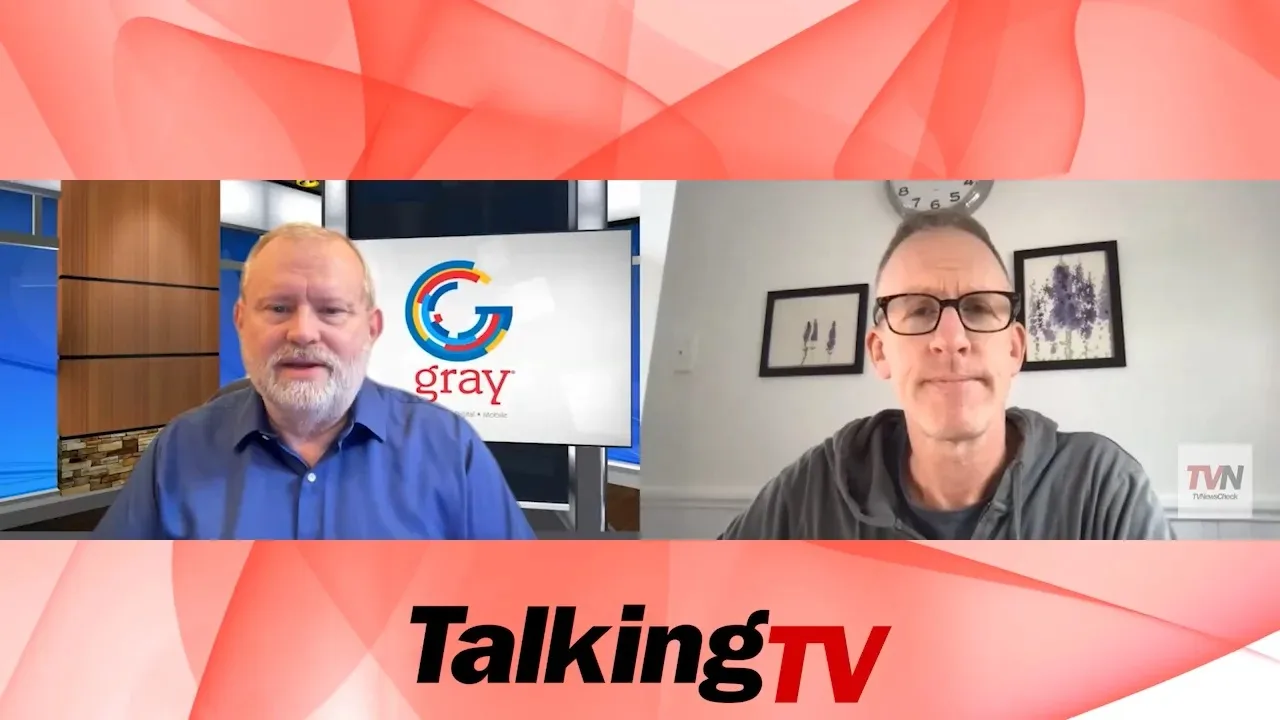Broadcast and communications consultant Cavell, Mertz & Associates has merged with Capitol Airspace Group. For more than 20 years, Capitol Airspace Group has provided analytical, strategic and advocacy services to […]
Three Democratic Philadelphia City Councilmembers have weighed in at the FCC in support of the license renewal application for Fox Corp.’s WTXF Philadelphia. The comments are in response to a […]
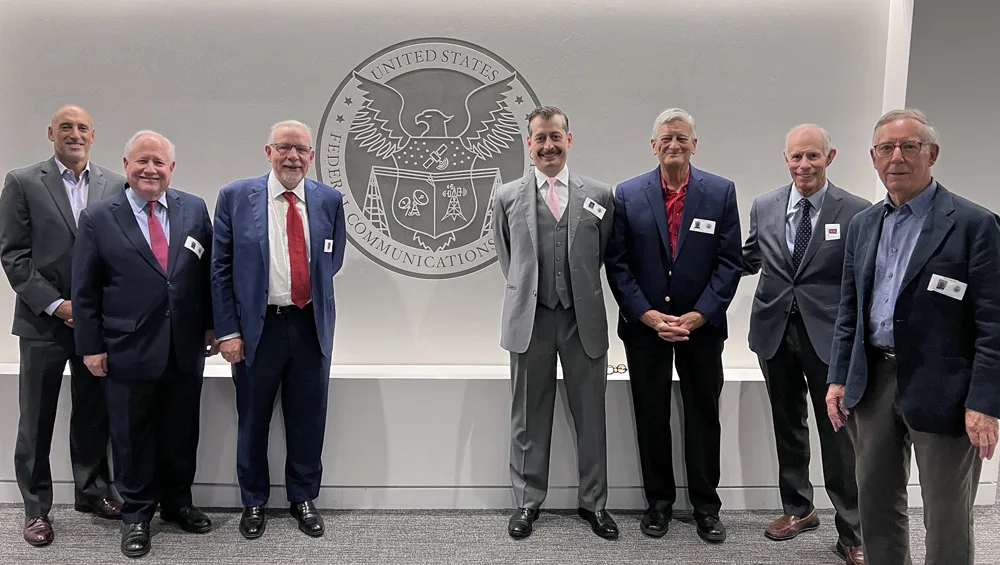
Former Republican FCC Chairman Al Sikes and other representatives of the group demanding that the FCC revoke the license of Fox-owned WTXF Philadelphia visited FCC officials in Washington yesterday to press their case. The Media and Democracy Project (MAD) argues that the Murdoch family that controls the station and Fox News is unfit to hold broadcast licenses because of the news network’s role in promoting Trump’s false claim that he lost the presidency in 2020 because of a rigged election. The contingent (l-r): David Goodfriend, adviser to MAD; Bill Kristol, former editor of conservative, Murdoch-owned The Weekly Standard; Art Belendiuk; counsel to MAD; Milo Vassallo, executive director, MAD; Preston Padden, former Fox executive and Murdoch lobbyist; Bill Reyner, former counsel to Murdoch/Fox; and Sikes.
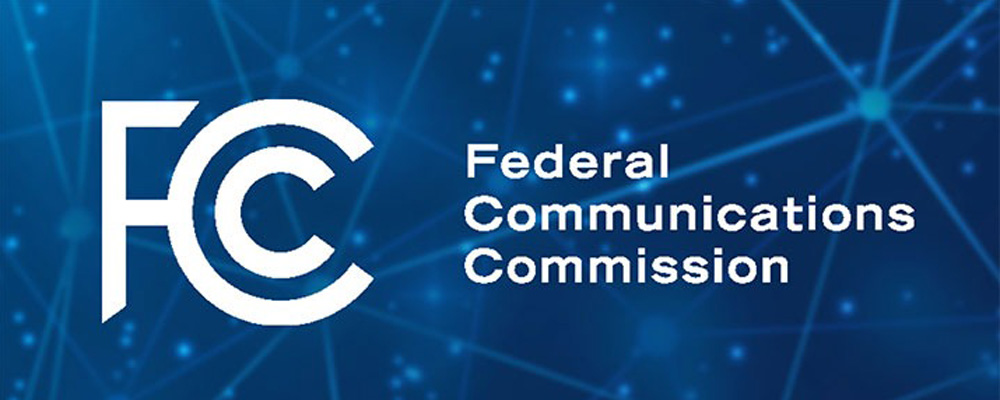
The FCC has voted 3-2 to begin the process of giving utility-style authority to regulate broadband access by reclassifying broadband as a Title II telecommunications service subject to some common-carrier regulations and then restoring bright-line rules against blocking, throttling and paid prioritization. Broadband access is currently classified as a Title I information service under the Communications Act of 1934, and thus not subject to mandatory access or other common-carrier regulations.
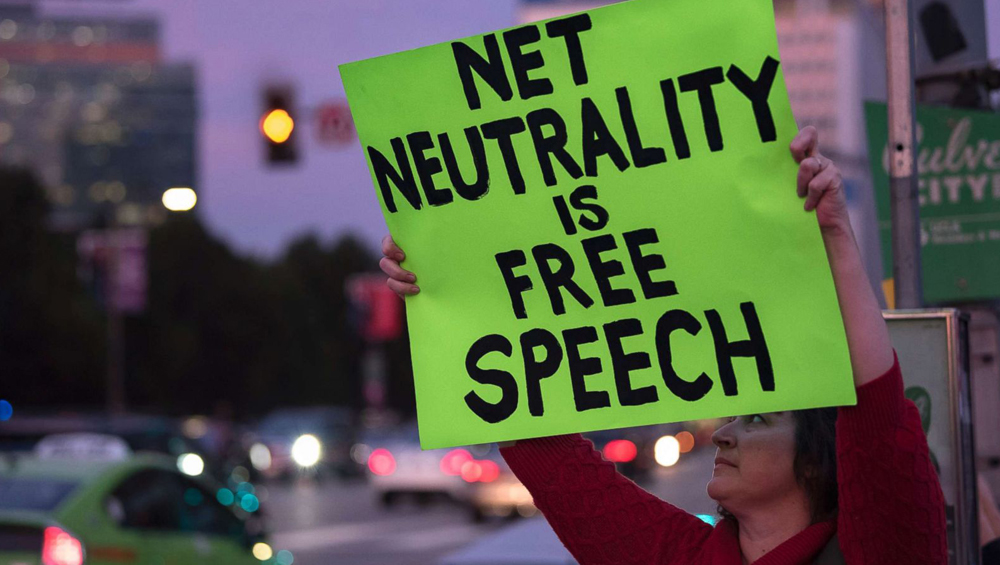
Comcast, Charter, AT&T and other telecom giants are expected to wage a legal fight with the Democratic-controlled agency over this regulatory push.
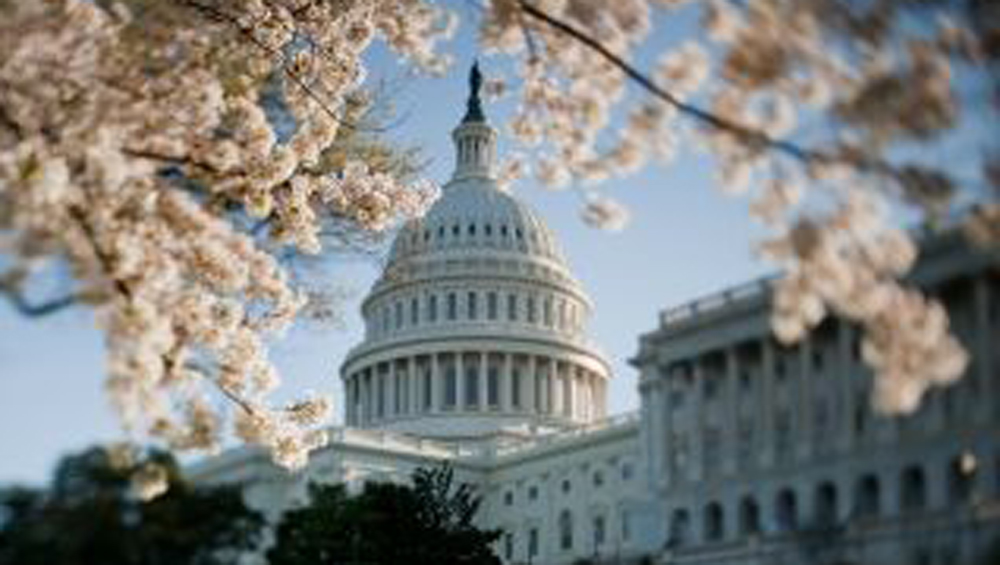
In the letter, 20 senators express concern regarding their constituents’ continued ability to access programming from local broadcast television stations on digital streaming platforms. The senators urge the Commission to reexamine its proceeding, first opened in 2014, that solicited comments about whether federal regulations governing pay TV providers such as cable and satellite providers should extend to streaming platforms that offer linear programming.
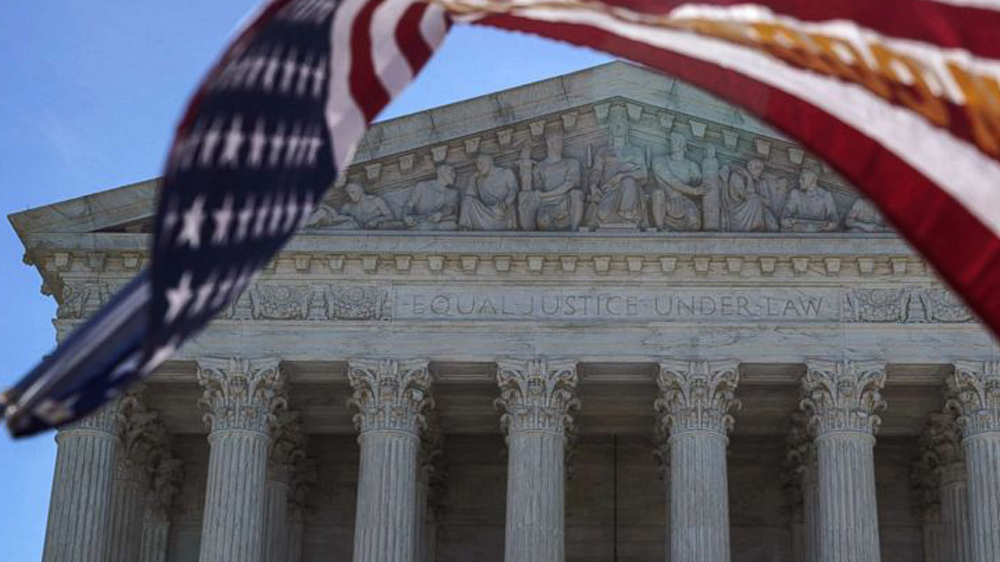
he Supreme Court has agreed to hear a case early next year that could impact how much regulatory discretion the FCC has over the communications industry. The court agreed Friday to hear the case of Relentless Inc., et al. v. Dept. of Commerce, et al. The case is about a federal rule requiring fishing companies to pay for government monitoring of their herring catches. While the case may be about fish monitors, it is also about the Chevron doctrine, which is a principle of administrative law that holds that courts should give deference to a regulatory agency’s subject matter expertise when it comes to interpreting unclear statutes.

The Commission will also consider new rules on accessibility, the E-Rate program, unlicensed use of the 6 GHz band and other issues at its next open meeting.
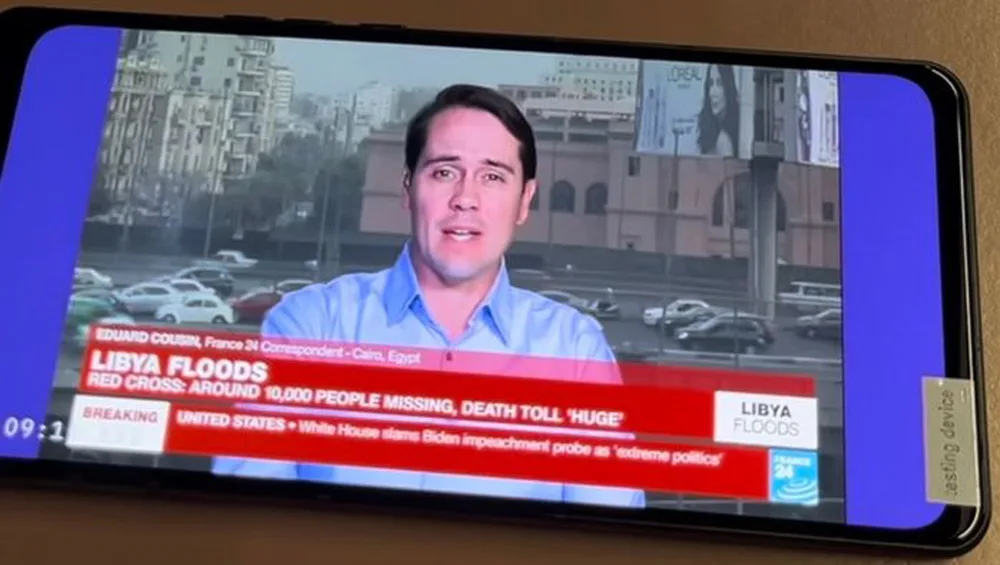
TV stations hope to tap in to the huge market of mobile customers and move big groups of people back to the broadcast model. Pictured: A phone showing a 5G broadcast of France24’s English language programming. (Photo: Bill Christian)

Phillip Swann: FCC Chairwoman Jessica Rosenworcel announced two rule proposals designed to “empower” consumers during channel blackouts caused by carriage disputes between TV providers and broadcasters. However, the proposals would actually “empower” the broadcasters, perhaps triggering even more blackouts. Her initiative is another example of how politicians in Washington are detached from reality when it comes to governing emerging TV technologies.

The FCC has set the date by which the majority of U.S. internet service providers must display congressionally mandated broadband consumer labels: April 10, 2024. The additional paperwork required from ISPs by the new labels has been vetted and approved by the Office of Management and Budget.
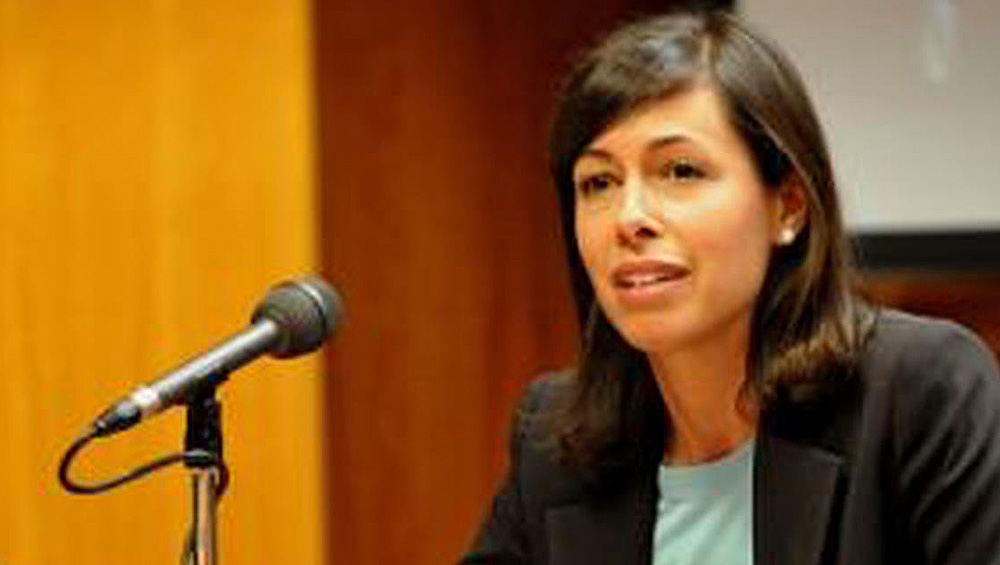
FCC Chair Jessica Rosenworcel is proposing to put the onus on cable and satellite operators to inform the agency if a broadcast channel they carry has gone dark for an extended period due to a retransmission-consent impasse and to refund subscribers for those extended blackouts. She has circulated notices of proposed rulemakings (NPRMs) to that effect to her fellow commissioners. If approved, the notices would seek comment on rules requiring multichannel video programming distributor (MVPD) notifications of any blackouts exceeding 24 hours, and mandating rebates to customers for those disruptions.
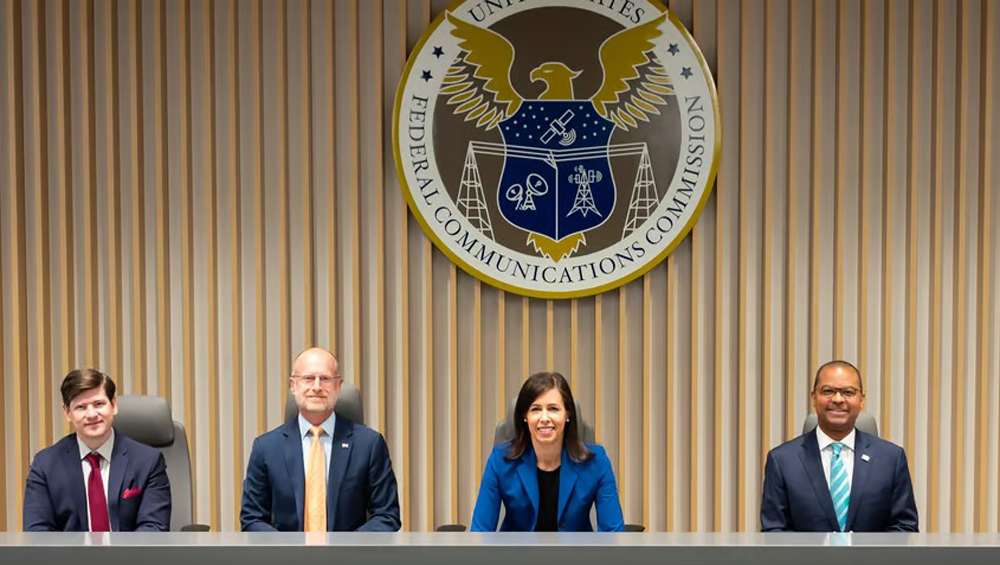
The Biden administration has told the FCC it should adopt a broad definition of digital discrimination, including in pricing, as it comes up with rules for handing out tens of billions of dollars in broadband buildout subsidies intended to achieve unversal deployment by decade’s end.

This will be the third nationwide test for WEA alerts to cellphones, but the second test to all WEA-compatible cellular devices. The test message will display in either English or in Spanish, depending on the language settings of the wireless handset. This will be the seventh nationwide EAS test. It begins today at approximately 2:20 p.m. ET.

The FCC’s Enforcement Bureau says it has completed its investigation into Dish Network for failure to properly deorbit its EchoStar-7 satellite, accepting the company’s admission of liability and imposing a penalty of $150,000. This marks a first in space debris enforcement by the commission, which has stepped up its satellite policy efforts, including establishing the Space Bureau and implementing its Space Innovation Agenda.
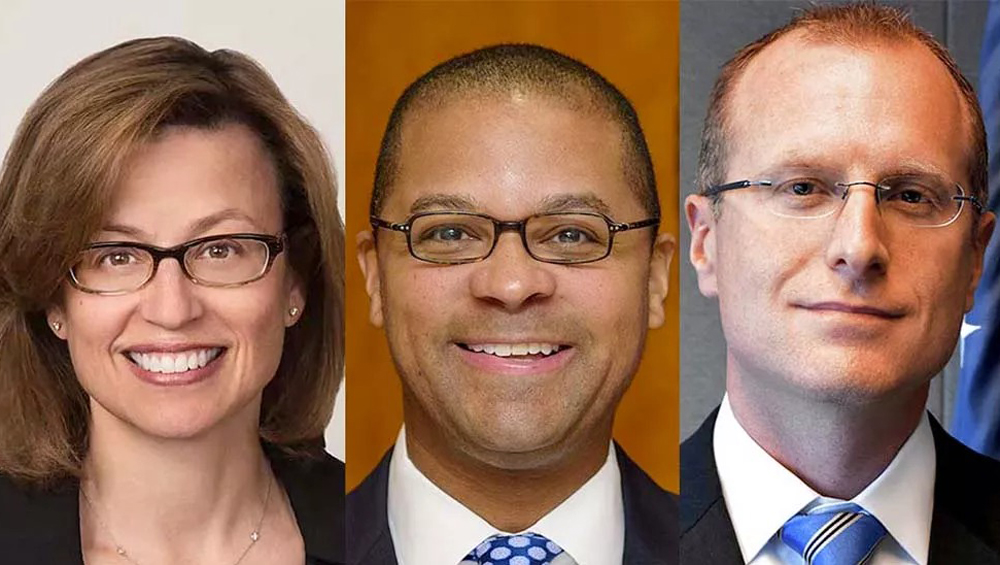
The Senate has confirmed the re-nominations of Democrat Geoffrey Starks and Republican Brendan Carr for new terms on the FCC, insuring there won’t be any more FCC nomination drama, at least in the near term following last week’s swearing in of Democrat Anna Gomez. The pair were confirmed by voice vote late Saturday (Sept. 30).

The FCC has 90 days to finish its review of the rules governing how many broadcast stations a company can own, a federal court said in a ruling on Friday (Sept. 29). The agency is required to review the laws every four years to see if they continue to serve the public interest. It kicked off the review in 2019, but a series of legal entanglements delayed the actual start of the process. After further stalling this year, the National Association of Broadcasters filed a petition with the D.C. Circuit Court of Appeals in April to get the process moving.

FCC Chair Jessica Rosenworcel said Tuesday she is moving forward with a proposal for sweeping broadband regulations that would restore the Obama-era open internet rules. The potential rules will include a key provision that would reclassify broadband as a utility service, regulated under Title II of the Communications Act. That reclassification is a necessary first step toward imposing common carrier requirements.
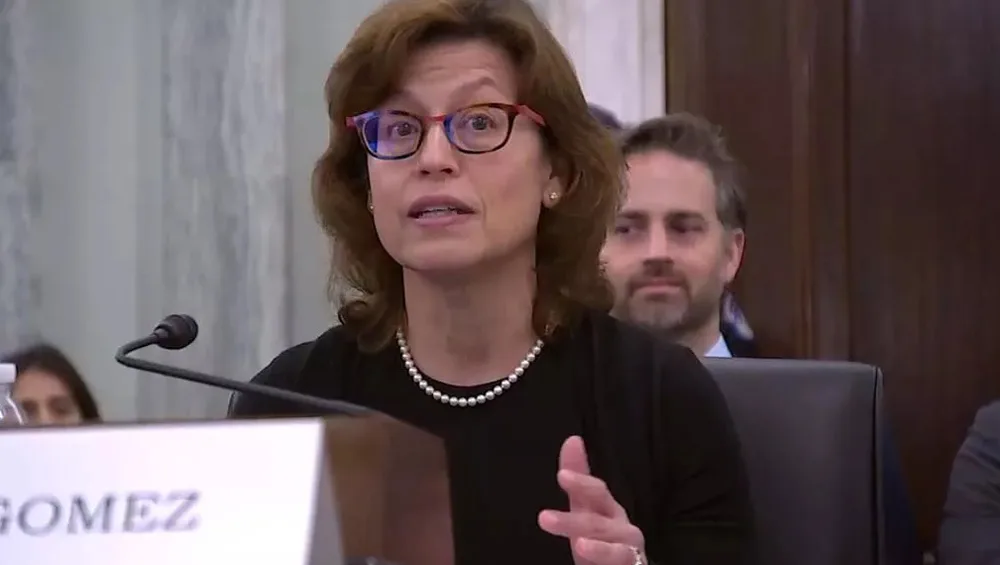
Anna Gomez has been sworn in as the newest commissioner of the FCC. The Democrat gives Chairwoman Jessica Rosenworcel the majority she needs to start tackling nonbipartisan issues like potential media regulation and network neutrality rules.
FCC Chairwoman Jessica Rosenworcel today announced the appointment of Dr. Johannes M. Bauer as the agency’s chief economist. The FCC also announced the winners of the agency’s Excellence in Economic Analysis […]
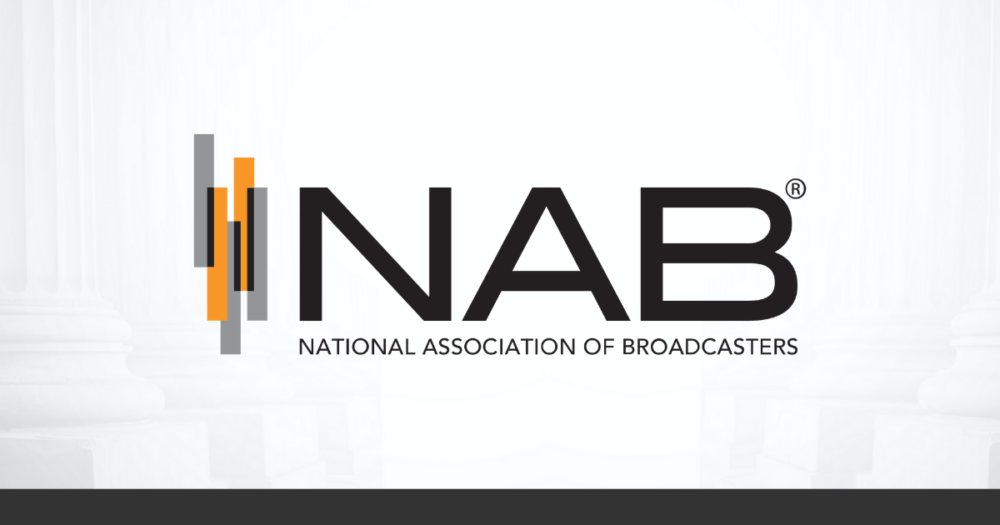
“A fully seated FCC must pursue more ambitious and necessary reforms,” the group wrote. “Specifically, there are three areas where action is necessary to enable vital local news and information our communities need.”
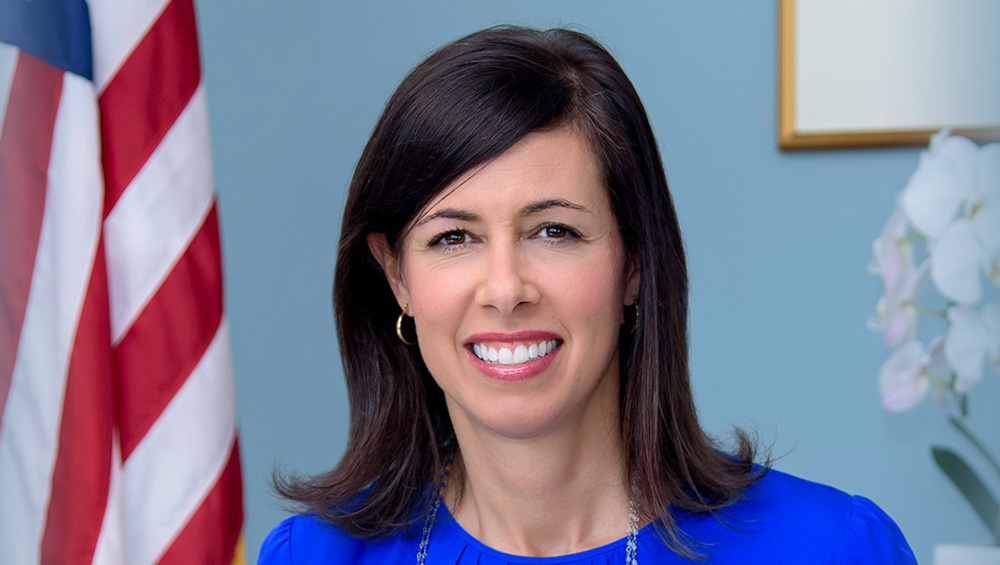
Federal Communications Commission Chairwoman Jessica Rosenworcel issued the following statement on the U.S. Senate confirmation of Anna Gomez to serve a five-year term as an FCC commissioner: “Congratulations to Anna […]
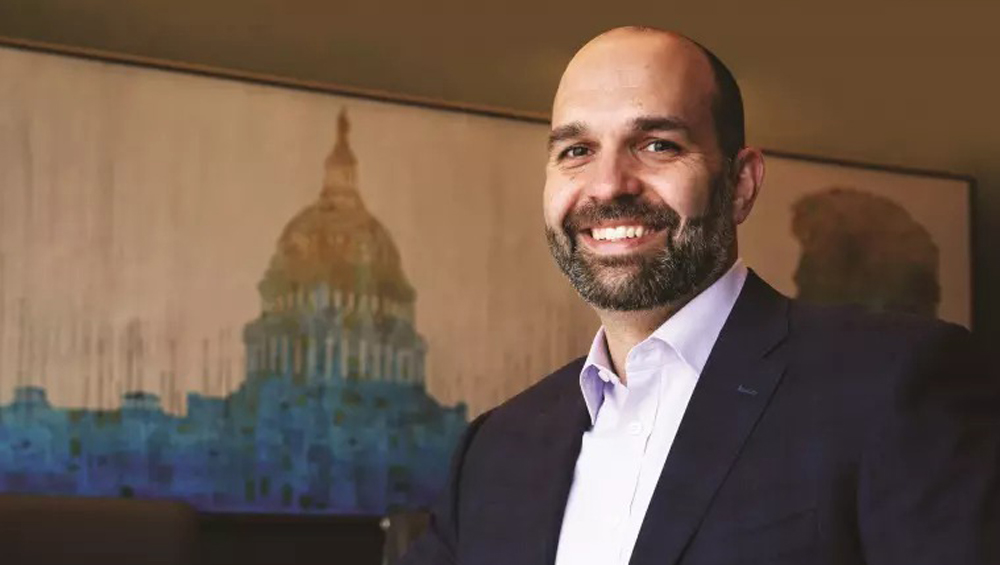
“Her wealth of experience in telecommunications policymaking will help the FCC address the critical issues facing radio and television broadcasters,” reads part of the statement from NAB President and CEO Curtis LeGeyt.

The Senate on Thursday moved toward confirming a third Democratic commissioner to the FCC, giving the party a working majority on the commission almost three years into President Joe Biden’s presidential term. Anna Gomez (pictured), a telecommunications attorney, was nominated by Biden last May. The Senate voted 55-43 to cut off debate and proceed to a final vote on her nomination, which will take place later on Thursday.
Broadcast Coalitions Lock Horns Over vMVPD Issue With Hundreds Of Millions Of Dollars At Stake

Dueling coalitions — the affiliate-led Coalition for Local News and O&O-led Preserve Viewer Choice Coalition — have raised the temperature on a long-simmering argument over who should be able to negotiate retransmission rights with vMVPDs. The growing size of the vMVPD revenue pot in an awful year for spot TV may have a lot to do with the timing.

While Americans are getting increasingly used to emergency alerts from local police and fire officials, on October 4 at 2:20 p.m. ET they’ll receive something a little different. “This is a test of the National Wireless Emergency Alert System. No action is needed,” the alert should read. It will be sent to all consumer cell phones in either English or in Spanish, depending on the language settings of the wireless handset.
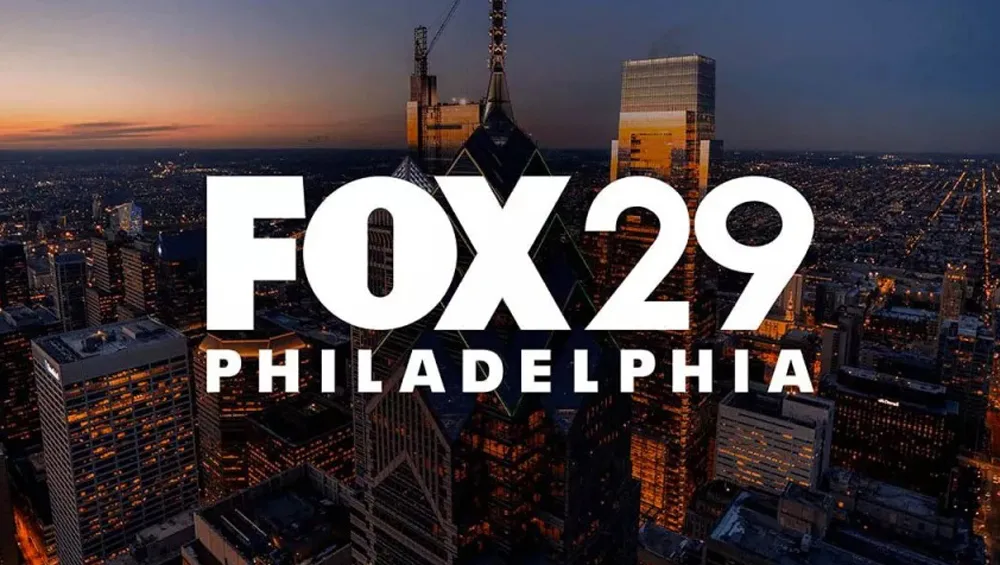
Harold Feld: “While getting the FCC to hold a hearing — let alone deny Fox29’s application for renewal — is certainly a long shot given how the FCC works, this is not a frivolous claim. To the contrary, it raises some very interesting questions from an FCC law perspective. So it is worth actually walking through the process here and what questions the FCC would need to resolve either to dismiss the petition to deny or to designate for a hearing. Because ultimately, unless the FCC finds a procedural deficiency, the FCC is going to have to actually write up a real and binding decision with real consequences and real precedential value.

The FCC released its annual pblic notice setting the deadline for paying annual regulatory fees. Payments can be made via the FCC’s Commission Registration System (CORES) through 11:59 p.m. ET on Sept. 20. In addition to marking this deadline on their calendars, broadcasters should note with some satisfaction that despite the FCC’s overall budget increasing by more than $8 million, regulatory fees for broadcasters decreased by between 5% and 8%.

Fox Corp. is pointing to support from a handful of legislators as it pushes back on an effort to challenge its qualifications to hold TV station licenses. In a filing with the FCC, Fox sent four letters from U.S. Reps. Brendan Boyle (D-Pa.) and Brian Fitzpatrick (R-Pa.), as well as Camden, New Jersey Mayor Victor G. Carstarphen and Pennsylvania State Rep. Anthony Bellmon (D-Philadelphia), all praising the public service of WTXF, Fox’s Philadelphia O&O whose license has been challenged.

The Federal Emergency Management Agency and the FCC announced that a nationwide test of the Emergency Alert System will take place on Oct. 4 at 2:20 p.m. ET. EAS participants, with limited exceptions, should have already filed their ETRS Form 1 providing the FCC with information about their stations’ EAS equipment. Any EAS participant that must update their ETRS Form 1 to ensure its accuracy must do so on or before Sept. 15.

Regulators invited public comment on whether the U.S. broadcast license for Fox Corp.’s TV station in Philadelphia should be renewed after a grassroots organization asked that it be denied, saying Fox knowingly broadcast false news about the 2020 election.
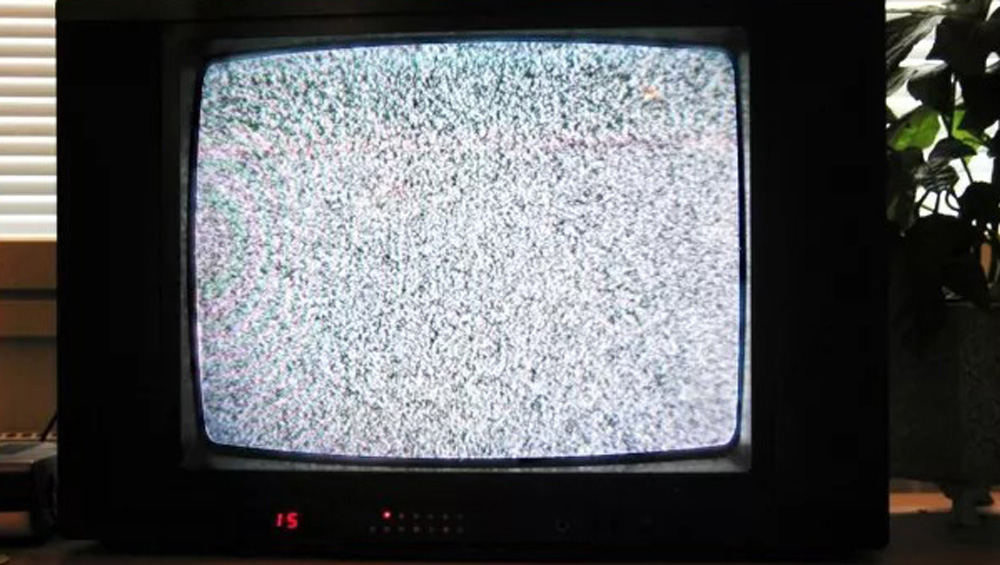

The challenge to Fox’s WTXF Philadelphia license is drawing a crowd, including founding president of Fox Broadcasting Jamie Kellner. Already this week Alfred Sikes, the Republican FCC chairman whose commission helped pave the way for the creation of a fourth network, registered his support for holding a hearing on Fox’s qualifications to be an FCC licensee. Now Kellner, along with former Democratic FCC Commissioner Ervin Duggan and ex-Fox News Channel commentator Bill Kristol, former editor of The Weekly Standard, have joined the chorus of Fox critics.

It has been more than one month since the Senate Commerce Committee favorably reported the nomination of Anna Gomez to fill the fifth, and vacant, seat on the FCC, but the Senate has teed up the nomination for a vote likely in September, said one observer who will welcome the Democratic majority.
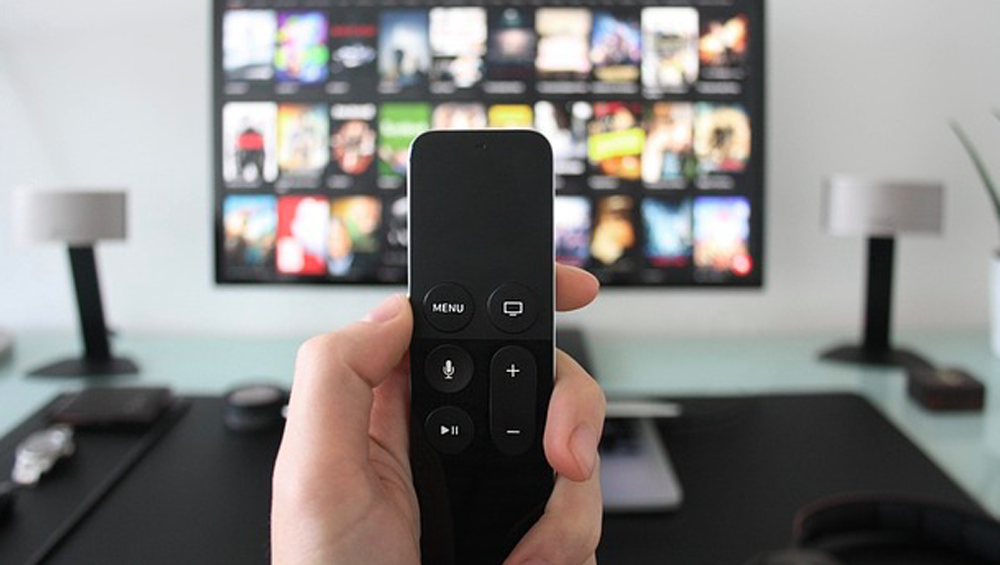
Two House Republicans are urging the FCC to resist the urge to apply “1990s-era laws and regulations” to virtual multichannel video programming distributors (vMVPDs). They argue, in part, that those Internet-delivered pay-TV services bring critical competition to the pay-TV sector and that Congress, not the FCC, has the authority to alter those rules, anyway. That warning arrived in an Aug. 9 letter to FCC Chair Jessica Rosenworcel from House Energy & Commerce Committee Chair Cathy McMorris Rodgers (R-Wash.) and Communications Subcommittee Chair Bob Latta (R-Ohio).

Following a recent workshop on the potential impact of AI on the communications sector, The FCC has voted to launch a Notice of Inquiry into non-federal spectrum usage and explore how new data sources, methods and technologies like AI would allow the agency to better manage increasingly congested commercial spectrum. This NOI will explore how new tools can promote effective spectrum management and identify new opportunities for innovation, the FCC said.
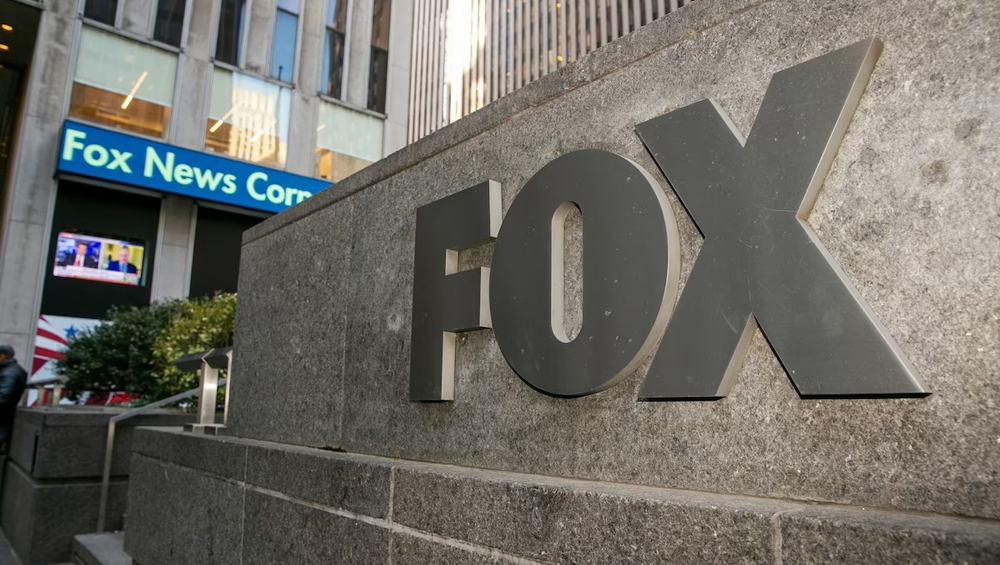
Fox is invoking the First Amendment in its opposition to a challenge to its character qualifications to hold an FCC broadcast license. The Media and Democracy Project (MAD), citing Fox’s settlement of the Dominion Voting Systems lawsuit over election misinformation, last month challenged the renewal of Fox’s WTFX Philadelphia, and by extension Fox’s character qualifications for holding any TV station licenses at all. According to a copy of its opposition to that challenge, filed with the FCC Wednesday (Aug. 2), Fox says MAD has failed to make a case that Fox’s license renewal should be denied and is treading dangerous ground.
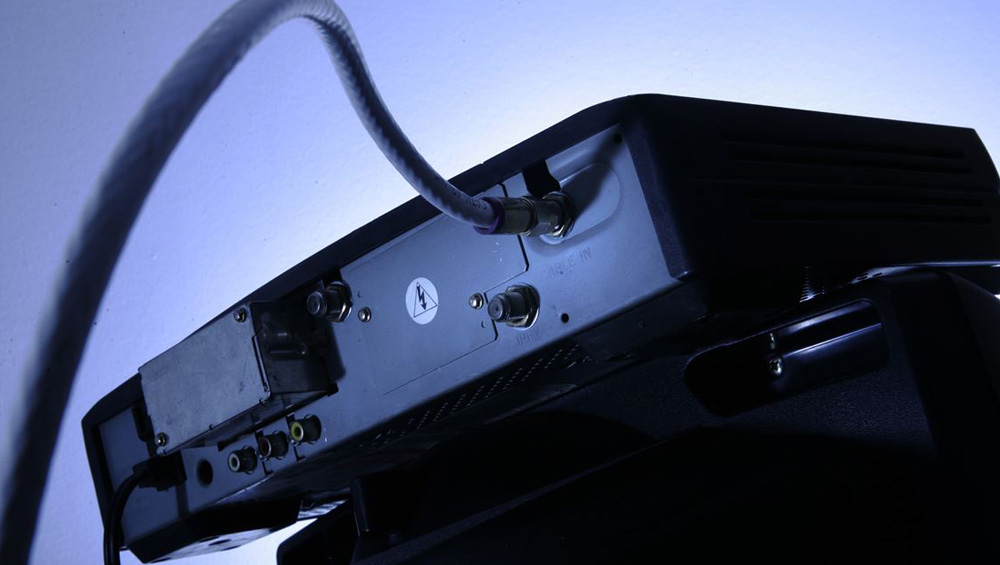
Customers could be “troubled” to learn the actual price of their cable TV service if the FCC adopts a proposal that would require companies to disclose the flat price of service, ACA Connect says.


















